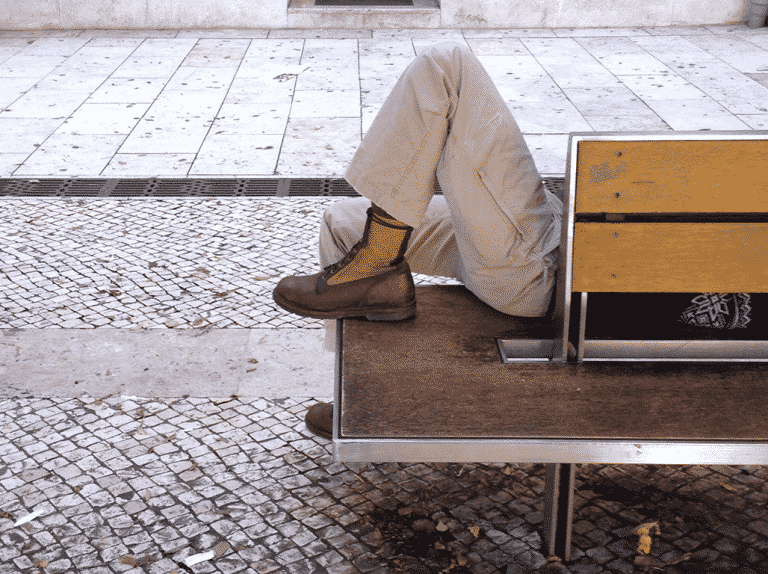It’s more than a hangover when you feel crappy the morning after drinking
When you’re a teen or young adult, you may expect to throw up a lot and feel super crappy the next day after a party. When you’re older, you feel even worse. Drinking too much is messy. But what goes along with the physical symptoms of a hangover?
It’s more than a hangover if you’ve done something stupid
If you’ve done something reckless or hurt someone else, or gotten hurt yourself, which is common with high school and college drinking, you can have lasting feelings of guilt and shame for what you did. You can also go to jail for something you did under the influence.
Alcohol makes you more depressed
If you drink because you’re depressed and want to feel better, drinking too much will give you a more than a hangover. You’ll be feeling shame, and yes, you will feel even more depressed. If you drink because you’re sad, you’ll be sadder when you wake up.
You’ll feel guilty and ashamed
Although people generally drink alcohol to lift their spirits, having too many drinks can leave you stressed, worried, or plagued with guilt, an experience informally called “hangxiety.”
It’s not surprising that anxiety is sometimes fueled by too much alcohol. How many times have you woken up wondering if you said—or did—something offensive?
What if you can’t remember
Clinical psychologist Moe Gelbart, Ph.D., and Executive Director of the alcohol and drug abuse program at Torrance Memorial Medical Center in California, says anxiety about foolish behavior is common.
“There’s lots of behavior that causes one to feel down and strange and sometimes anxious,” he says. “They begin to feel out of control. ‘What did I actually do?'”
It’s important to remember that alcohol isn’t easy for your body to process, meaning you’ll naturally feel fatigued after heavy drinking. Tolerance levels vary, but Gelbart says four alcoholic beverages in one sitting is potentially damaging for anybody. And when talking about hangxiety, it’s important to note that this typically doesn’t occur after just one drink.
“Alcohol is an assault on your body physiologically. It’s kind of like beating up on yourself on the inside.”
This explains why you vow to never drink again after suffering the consequences from ordering that fourth beer. Of course, you feel great while drinking, but that changes when the hangover sets in.
“You begin to feel miserable,” says Gelbart.
Aside from from ruining sleep, alcohol messes with your brain too.
Researchers know that drinking affects neurotransmitters, or chemical messengers that regulate mood and behavior. Dr. Aparna Iyer, M.D., psychiatrist and assistant professor at University of Texas Southwestern Medical Center, explained that alcohol binds to GABA receptors in your brain. This initially makes you feel good, but the effect doesn’t last.
“People who already have a pre-existing anxiety disorder, even if it’s a small one and kind of underlying everything, whatever they have quieted by drinking the alcohol, that can come back full force or even worse,” she told the magazine.
You may want to question the reason for your drinking, because underlying problems trigger hangxiety
“Not everybody who drinks heavily is depressed afterwards,” says Dr. Lance Dodes, M.D., and training and supervising analyst emeritus at the Boston Psychoanalytic Society and Institute. “I think it depends on why people were drinking.”
People who turn to alcohol when they’re unhappy will still be upset once the booze wears off.
“Drinking to deal with your problems is like taking your credit card bills and putting them in a shredder to deal with your debts,” says Gelbart. “They only go away for a moment.”
He recommends tallying how often you suffer negative consequences due to drinking. You may want to seek medical help if you’re continually getting into fights after guzzling beers. For more information on treatment options in your area, visit the National Institute of Health.
Although people believe booze helps them sleep, research shows the opposite is true.
Your entire sleep cycle is thrown out of balance after four drinks, according to a 2013 review of studies published in the journal Alcoholism: Clinical and Experimental Research. Scientists found that people who drink at least four beers had fewer dreams and were awake for longer periods of time.
“Sleep is an important part in recharging,” says Gelbart. “It restores you.”
Last year, researchers found that anxiety increased by 30 percent in sleep deprived people, Popular Science reported.
“Sleep loss triggers the same brain mechanisms that make us sensitive to anxiety to begin with—regions that support emotional processing and also regions that support emotion regulation,” says Eti Ben-Simon, study co-author and researcher in the department of neuroscience at the University of California, Berkeley.





















